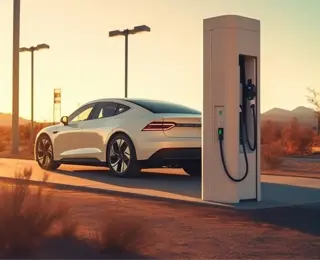Navigating Summer Heat for Electric Vehicles (EVs) and Hybrids
Electric vehicles (EVs) and hybrids are becoming more popular every day. It’s all thanks to stylish designs, impressive speeds and control, and the promise that battery power will be more friendly for the environment and the wallet. However, extreme summer heat can affect the performance, range, and battery life of today’s EVs and hybrids. Here’s a look at how you can maximize your range and batteries when temperatures start to rise.
How Does Extreme Heat Affect My EV/Hybrid Battery Life And Performance?
In a perfect world where temperatures hover at or near 80º F, electric cars achieve optimal performance and range, states Consumer Reports. But when temperatures reach 95º F, you can expect to lose up to 17% of your overall battery performance, according to AAA. That means an EV with a 350-mile range will lose 60 miles between each charge with temperatures near triple digits. But it’s not just heat that affects EVs. According to AAA, EV lithium-ion batteries lose 40% of their range or efficiency in freezing weather. Check out our article on how electric cars perform in winter.
Why does that EV battery lose power in the heat? It’s all science. High heat causes electrons in the battery to move slower. As they move slower, it reduces the amount of power being created. See our article about heat and its impact on your car battery. Additionally, unlike gas-powered cars and their internal cooling systems, lithium-ion battery-powered vehicles do not often have a way to cool the batteries in high heat.
What Precautions Should I Take When Charging My EV/Hybrid In Hot Weather?
Depending on where you live, it’s nearly impossible to avoid high summer temperatures completely. To help avoid damaging your battery and losing additional range, try these summertime charging tips:
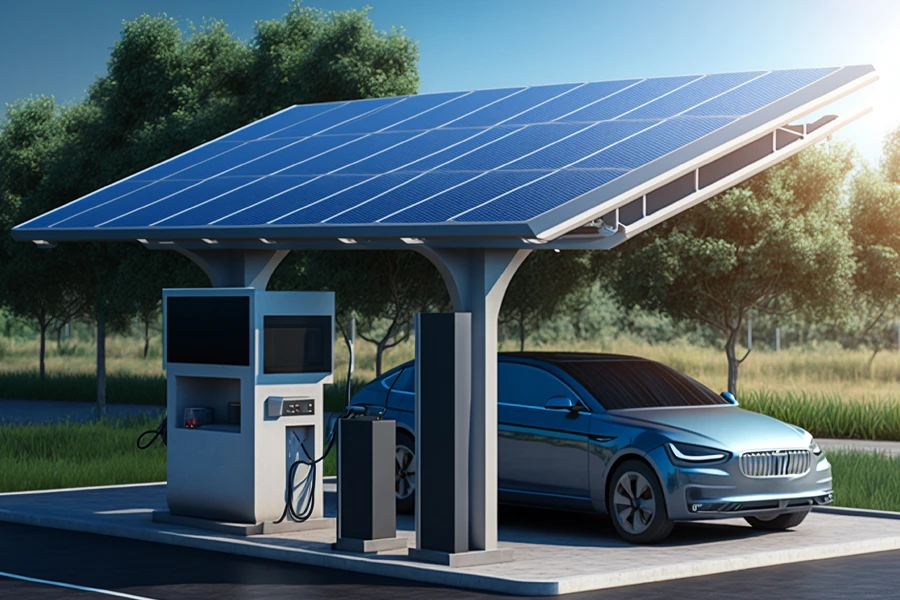
- Avoid charging in the heat: The hotter it gets, the stronger the electric current being pumped into your vehicle. This increased power from the charger can damage lithium-ion batteries.
- Cool the battery (if you have the option): Some EVs have pre-conditioning features that cool the battery before a long trip.
- Charge to 80%: This will give your battery a little breathing room, reducing the potential for damage.
- Use manufacturer-recommended chargers: Whether at home or on the road, look for chargers built for your vehicle.
Can Hot Weather Reduce the Driving Range & Efficiency of My Electric or Hybrid Car?
The short answer is yes. As temperatures climb above 95º F, you will lose some efficiency and range. Some estimate a loss of up to 17% or more per charge. To help reduce the loss in range and efficiency on those days, try these tips.
- Turn on the air-conditioning when your EV is plugged in or charging: This will help reduce the amount of power needed to cool the cabin while driving.
- Drive smart: The less you adjust your speed, the more range you’ll get out of your EV in hotter weather.
- Limit electricity use: That includes phone chargers, infotainment systems, and more.
- Maintain proper tire air pressure: This helps reduce rolling resistance, which can improve range. Stop by Les Schwab and we’ll check your tire pressure and add air for free.
Can The Regenerative Braking System In My EV/Hybrid Be Affected By Hot Weather?
The regenerative braking systems in many of today’s EVs and hybrid cars and trucks act as generators to create electricity that is then stored in the battery. This happens every time you take your foot off the accelerator or press on the brake pedal.
This means your EV is making its own energy. However, it’s not enough to keep it fully charged. That is especially true in the summer heat. As mentioned, summer heat can limit the efficiency of an EV battery.
Because of the overall weight of EVs and some hybrids, the traditional braking systems found in those vehicles can wear down more quickly than those in a gas-powered vehicle. To ensure your brakes are working at peak performance, get to Les Schwab for a free visual brake inspection.
Things to Keep in Mind for Tire Performance and Safety
Electric vehicles are heavy. That weight means owners need tires that carry a heavier load and withstand the increased braking distance. EV appropriate tires, as well as some tires designed for heavier vehicles can help minimize rolling resistance (the power needed to keep your tires rolling) to help maximize range. Plus, tires that meet or exceed your EV’s OE specifications are often designed to minimize road noise and help you enjoy a smooth, quiet ride.
Are your EV tires helping optimize range while also delivering safety every mile? The professionals at Les Schwab are happy to give yours a free visual inspection. With regular tire checks for tread wear, including rotations every 5,000 miles, you and your local Les Schwab can help you get the most out of your EV or hybrid all year long.
Stay Cool This Summer & Protect Your Eco-Friendly Car
Summer heat can affect the range and efficiency of today’s EVs and hybrids. But there are things you can do to get the most out of every charge and mile. The professionals at Les Schwab are here to help with tire rotations, air-pressure checks, as well as helping you find the right tires for your vehicle. Book your appointment today.
What you need to know
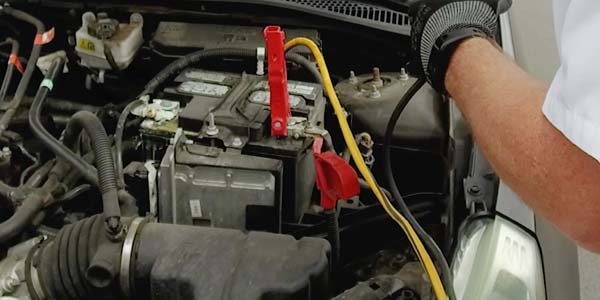
How to Jump-Start a Car
Need to know how to jump start a car that has a dead battery? Follow this guide for everything you need to know about jump starting a dead car battery.
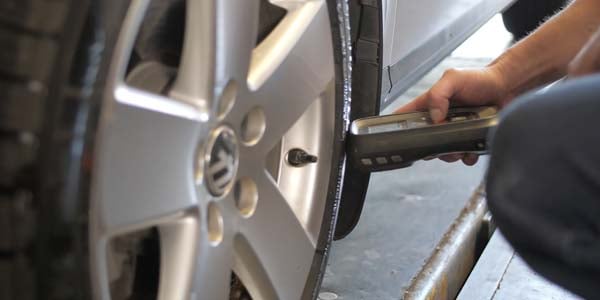
Resetting the Tire Pressure Light on Your Car
How do you reset the tire pressure light on a car? You'll find the answer in our complete guide plus find a ton more information on how to maintain your tires.
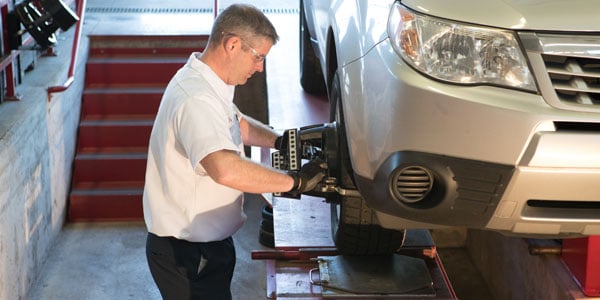
What Are Advanced Driver Assistance Systems (ADAS)?
Advanced Driver Assistance Systems (ADAS) are designed to reduce car accidents and increase driver safety. Let us break down everything you need to know.

